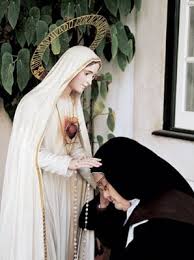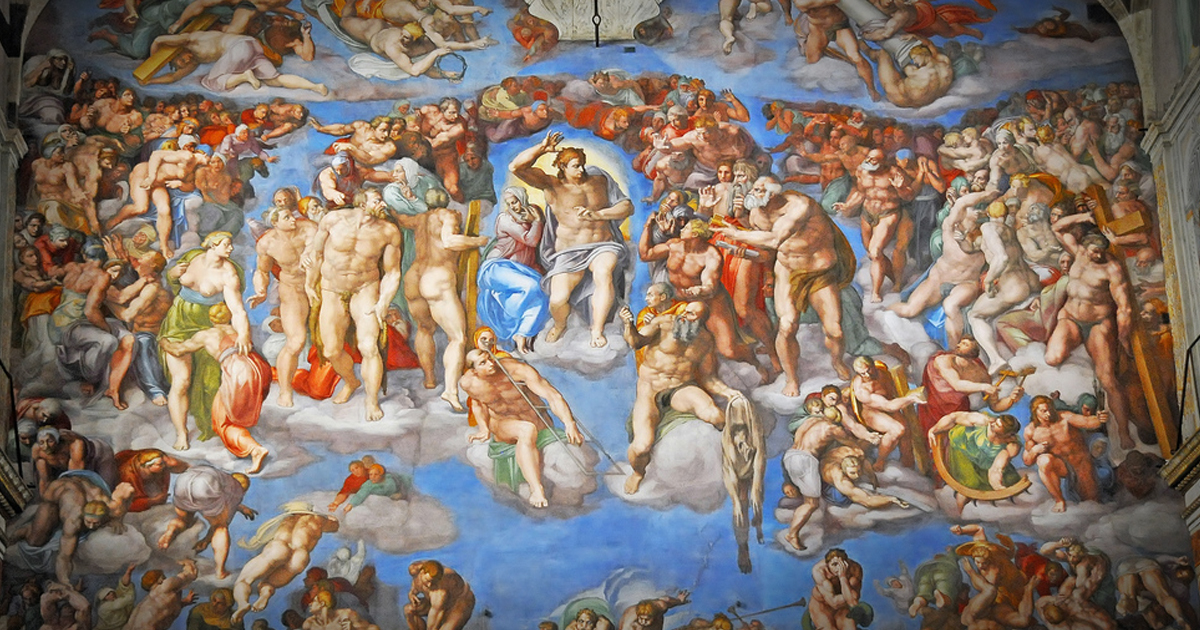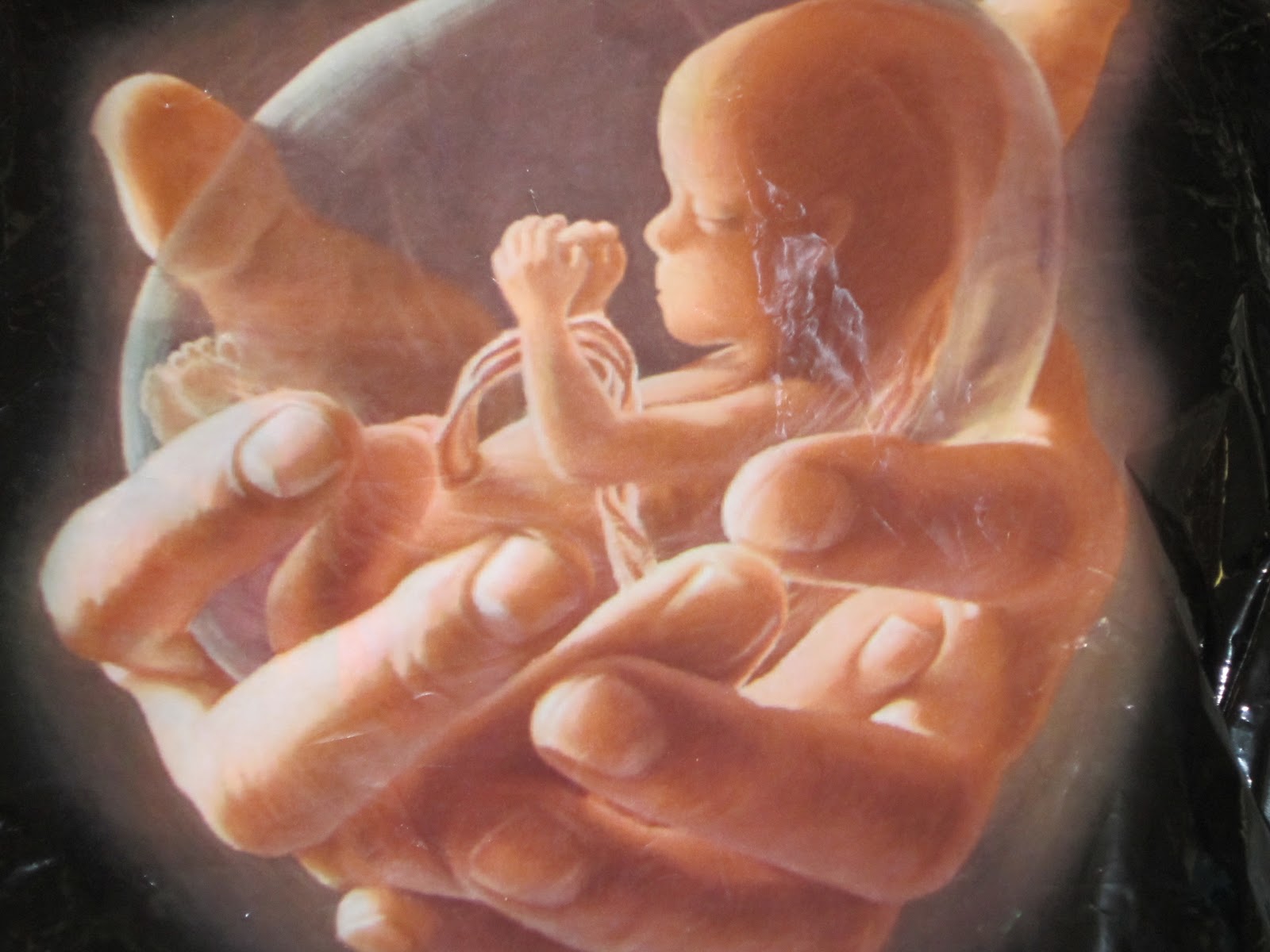Slavery, Slave Concubines, and the Koran (Pt. III in Series)

As we are now well into the 21th century of the Christian era, we in the West think it strange that the institution of Slavery still exists in this period of “the Declaration of human rights” by the United Nations. How can any nation be a member of the UN which promotes this inhuman and wicked violation of basic human rights? And yet, Muslim nations around the world, including the so-called “moderate” Muslim nations enslave people, keep women is semi-servile status, and completely eliminate basic freedoms like “freedom of Religion” without a word from us? The question is: Are we going to continue the PC rhetoric of “the problem is not with Islam” or are we going to face the truth and walk in the footsteps of our Holy Father, Pope St. John Paul II, who I cited in my last post on Islam, as one who was quick to praise the good while not hesitating to point out the spiritual bankruptcy that is Islam.
What is even stranger than the atrocities going on in Muslim nations is the fact that the so-called flawless, perfect, inspired and eternally revealed word of God to Muhammad (the Qur’an or Koran) not only tolerates abhorrent and immoral institutions like slavery but gives its blessing to the most despicable form of slavery, that of slave concubines! The Koran denies the basic equality of humanity and considers women as inferiors (I will give you many quotes from the Koran below) and suitable as slave girls or concubines. The Koran teaches that men can have only four wives which are divorceable and as many slave girl concubines as supportable. Children of wives and their mothers are free and have the right of inheritance. Slave girl concubines and their children are slaves and their masters can deal with them as they are so disposed according to the Koran.
To us as Christians, these things are abhorrent! But this comes from the supposed “uncreated and flawless Word of God?” Perhaps we can understand why people may be duped into believing these grave errors if one believes that God is the creator of good and evil who wills both good and evil, as we saw in a previous post on Islam, but we can never excuse this type of outrage and we must challenge our Muslim friends to consider the truth.
Slavery and the Inferiority of Women
We’ll begin here by taking a look at the Koran on slave girls and the so-called “prophetic privilege” of Mohammed. In what Muslims refer to as the full complete and eternal revelation of the flawlessly perfect and revealed word of God, Muhammad states:
Sura 16:75:
God makes this comparison. On the one hand there is a helpless slave, the property of his master. On the other, a man on whom We have bestowed Our bounty, so that he gives of it both in private and in public. Are the two equal? God forbid! Most men have no knowledge.
Sura 2:178:
Believers, retaliation is decreed for you in bloodshed: a free man for a free man, a slave for a slave, and a female for a female….
Sura 4:34:
Men have authority over women because God has made the one superior to the other, and because they spend their wealth to maintain them. Good women are obedient. They guard their unseen parts because God has guarded them. As for those from whom you fear disobedience, admonish them and send them to beds apart and beat them. Then if they obey you, take no further action against them. God is high, supreme.
Sura 33:52:
It shall be unlawful for you to take more wives or to change your present wives for other women, though their beauty please you, except where slave girls are concerned. God takes cognizance of all things.
Sura 23:1:
Blessed are the believers, who are humble in their prayers; who avoid profane talk, and give alms to the destitute; who restrain their carnal desires [except with their wives and slave girls, for these are lawful to them] and do not transgress through lusting after women…
Sura 70:26-31:
[Blessed are they] who truly believe in the Day of reckoning, and dread the punishment of their Lord, [none is secure from the punishment of their Lord] who restrain their carnal desire [save with their wives and slave girls, for these are lawful to them], he that lust after other than these is a transgressor….
Sura 33:37:
And when Zayd (Muhammed’s adopted son) divorced his wife, We gave her to you in marriage, so that it should become legitimate for true believers to wed the wives of their adopted sons if they divorced them. God’s will must needs be done.
This is contrary to Lev. 18:15, “Thou shalt not uncover the nakedness of thy daughter-in-law: because she is thy son’s wife, neither shalt thou discover her shame.”
Sura 33:51:
You may put off any of your wives you please and take to your bed any of them you please. Nor is it unlawful for you to receive any of those whom you have temporarily set aside. That is more proper so that they may be contented and not vexed, and may all be pleased with what you give them. God knows what is in your hearts. He is all knowing and gracious.
Mohammed’s “Prophetic Privilege”
Sura 33:50:
Prophet, We have made lawful to you the wives to whom you have granted dowries and the slave girls whom God has given you as booty; the daughters of your paternal and maternal uncles and your paternal and maternal aunts who fled with you; and any believing woman who gives herself to the Prophet and whom the Prophet wishes to take in marriage. This privilege is yours alone being granted to no other believer. We will know the duties We have imposed on the faithful concerning their wives and slave girls. We grant you this privilege so that none may blame you. God is forgiving and merciful.
Sura 33:4, 6-7:
God has never put two hearts within one man’s body. He does not regard the wives whom you divorce as your mothers, nor your adopted sons as your own sons. These are mere words which you utter with your mouths; but God declares the truth and guides to the right path… The Prophet has a greater claim on the faithful than they have on each other His wives are their mothers. God ordains that blood relations are closer to one another than to other believers or muhajirin, although you are permitted to do your friends a kindness. That is in the Book decreed.
Sura 33:53-54:
Believers, do not enter the houses of the Prophet for a meal without waiting for the proper time, unless you are given leave. But if you are invited, enter; and when you have eaten, disperse. Do not engage in familiar talk, for this would annoy the Prophet and he would be ashamed to bid you go; but of the truth God is not ashamed. If you ask his wives for anything, speak to them from behind a curtain. This is more chaste for your hearts and their hearts. You must not speak ill of God’s apostle, nor shall you ever wed his wives after him; this would be a grave offence in the sight of God. Whether you hide or reveal them, God has knowledge of all things.
After reading these texts of the Koran, my Catholic readers, or those not familiar with Islam, may well be shocked. To get us a better understanding of the underlying reasons for what seems so strange to us, perhaps at this point we should look at the life of Mohammed himself to get some more insight into Islam, help us to see the weaknesses and contradictions, and help us to be able to help our Muslim brothers be set free by our Lord and Savior Jesus Christ.
WHO IS MOHAMMED?
Mohammed is a prophet in Islamic teaching, but he is not the only prophet. He is “the seal of the prophets.” And the final prophet. Though the Koran does not give us a specific number of prophets, Muslim tradition has put the number at 240,000. About 25 of them are mentioned in the Koran, but according to the “Hadiths” there have been prophets throughout the history of the earth, in many nations, places, and among many peoples for thousands of years. In Sura 6:84-86 we read about some of these prophets. Most of them come from the Bible.
We gave him [Abraham] Isaac and Jacob: all (three) We guided: And before him We guided Noah, And among his progeny, David, Solomon, Job, Joseph, Moses and Aaron: Thus do We reward Those who do good: And Zakariya and John, And Jesus and Elias: All in the ranks Of the Righteous: And Ismail and Elisha, And Jonas, and Lot.
It is very important to remember that in the Koran, all of the prophets messages are said to never contradict one another. In fact, in Sura 5:50, Christians are told to look into their own Scriptures to find God’s revelation for them! And even Mohammed himself commanded his followers to test the truthfulness of his own message against the contents of the previous divine revelations give to the Jews and Christians (cf. Sura 10:94).
In Sura 29:46 we read:
And dispute ye not With the People of the Book, except with means better… But say, “We believe In the Revelation which has come down to us and in that Which came down to you.”
We will talk more about this later, but it is very important to remember that the Koran teaches that all prophets agree with one another because they receive revelation from the same God! We hear from Muslim scholars what would later be called the Doctrine of Tahrif, which claims the Jews and Christians corrupted their sacred texts, but the Koran does not teach this. The Koran accuses “the people of the book” of “knowingly hiding the truth” (Sura 2:42; 3:71), or even of verbally “distorting the message in their books” (Sura 3:78; 4:46) and not believing in all the parts of their Scriptures (Sura 2:85). In fact, in Sura 62:5, the Koran says they are like “that of a donkey which carries huge tomes (but understands them not).” But never does the Koran teach that the revelations given to Jews and Christians had been corrupted. This doctrine developed as Muslim polemicists had to deal with the obvious contradictions between the Koran and the “revelations” of the Jews and Christians, which leads us to our next point:
Jesus in the Koran
Jesus is considered to be a prophet and his words are binding upon true Muslims. But Christians distort and deny his words and commit the unpardonable “sin of shirk” according to Sura 5:75:
They do blaspheme who say: “God is Christ the son of Mary”… Whoever Joins other gods with God-God will forbid him The Garden, and the Fire Will be his abode.
Jesus is referred to as Messiah 11 times in the Koran. He is “the Word of God,” and “the Spirit of God” in Sura 4:169-71, “the Speech of Truth” (Sura 19:34-35), “a sign unto men,” and “Mercy from God” (Sura 19:21). But the Koran is very clear to deny his divinity against the Christians in Sura 5:78 and elsewhere.
There is a special vehemence against the thought of Jesus being “the Son of God.” Sura 10:68:
They [Christians] say: “God hath begotten a son” – glory be to him! He is self-sufficient… No warrant Have ye for this! Say ye about God what you know not?
However, it is interesting to note that Jesus is said to have been “created” in similar fashion to Adam, “by God’s command,” in Sura 3:59. The famous Muslim Apologist, the late Ahmad Deedat, said, “If Jesus is God, and the very Son of God because he had no earthly father, then Adam is a greater God, because he had no father and no mother! Simple basic common sense demands this deduction.” (Geisler, p. 62)
Crazy reasoning, but it affirms what the Koran affirms more than once. Jesus was born of a virgin in a miraculous birth! (See Sura 19:16-21; 3:37-45)
Jesus is also seen as “raised… up” to heaven in Sura 3:55; 4:158, and the Koran also says Jesus will return to earth one day to destroy every cross on earth and bring Islam to the world in the last days!
Sura 4:157-159 tells us that Jesus was not crucified. The Jews and Romans thought they crucified him, but they did not! There is much tradition surrounding Christ that says he will return one day and destroy all crosses, destroy all synagogues and churches, live 40 years and be buried in Medina beside Muhammad. The Koran refers to Apocryphal Gospels (which have been proven to be fakes, like the Gospel of Thomas), that have Jesus creating live birds from clay and proclaiming his prophethood from the cradle (Sura 19:29-31; 5:113). This kind of nonsense is easily shown to be erroneous from an historical perspective.
There is much we could say about Jesus as a prophet in Islam. Most important, of course, is the fact that he is a prophet in Islam! And as such, his words should be heeded as the Word of God!
I’ll tell you what. We will come back to that point later, but for now, let’s get back to the man, Mohammed himself.
Mohammed was born in AD 570 in Mecca. Not much is known of his years growing up, but he married his first wife, Khadijah, in 595, at the age of 25. She was 40. They had two sons, who both died in infancy, and four daughters.
His first “revelation” came when he was 40 in AD 610. Not many Christians know this, but Muhammad was deathly afraid and thought he was possessed by a Jinn or an evil spirit! He even contemplated suicide as a result!
As a Christian, of course, we have been warned: “If I or an angel from heaven preach unto you any other gospel other than what we have preached to you, let him be accursed!” See Gal. 1:8-9, cf. II Cor. 11:2-5,12-13, I Tim. 4:1-3, I John 4:1-2. This may well explain the demonic torments Mohammed went through. One can only wish a good Christian could have been there to guide Mohammed to the truth!
But at any rate, Muhammad’s wife, Khadijah, who died early on, in AD 619, encouraged him to be not afraid and was among his first converts along with Ali, his cousin, his adopted son, Zaid, and his life-long friend, Abu Bakr. At first, he was persecuted and rejected in Mecca and eventually kicked out of the city. But during this time, there was the occasion of the now famous “Satanic Verses.” Mohammed received a “revelation” during the time of persecution that told him to proclaim that the favorite deities of the Meccans, AL-LAT, AL-UZZA, AND MANAT could be considered divine beings whose intercession was effectual with God. Because this is recorded by the very earliest Muslim historians, there can be little doubt as to its historicity. They would not make something up that was this damning of their prophet. Some modern Muslim biographers try to discredit the story, but most simply say this is an example of Muhammad’s “humanity.” I would say it is an example of “fallibility!”
Mohammed received further “revelation” that the message was satanic and he replaced those words in the Koran with what we now have in Sura 53:19-23 (see also Sura 22:51, which alludes to it).
Tensions increased in Mecca until he was kicked out of the city, but he was then received in Medina. This is why these are the two holiest places in Islam.
It was during this period that Mohammed was supposed to have been carried to heaven and to Jerusalem miraculously. By the way, this is why Jerusalem is the third holy place in Islam. And it was during this time, as well, that he began to gather a significant number of followers. The main thrust of his message was the one-ness of God against the polytheism and idolatry of the day. But he had a problem. His followers were poor and they needed food. Some were involved in trade, but they could not support themselves. So guess what? Mohammed and his followers began to raid Meccan caravans and take what they wanted for “booty.” Then, of course, Muhammad had “revelations” and support for this from God! How convenient!
In Sura 22:39-40 and 2:244, God tells Mohammed and his followers to “Then fight in the cause of God, and know that God Heareth and knoweth all things.” And he also had “revelations” about “special rewards” and entrance to paradise for fighting for God in these holy wars (cf. Sura 4:95-97). Once again, how convenient!
In fact, the Battle of Badr in AD 624 (in March) is supposedly one of the “miracles” that prove Mohammed to be a prophet! They defeated an army of 950 Meccans with 300 Muslims! (cf. Sura 8:17; 65).
The Battle of Uhud, shortly thereafter, is not quite as popular because the Muslims were defeated by the Meccans! Does this “prove” Mohammed was not a prophet?
At any rate, Mohammed then gathered his people and went to war for Allah. They laid siege to Mecca and slaughtered the men and sold the women and children into slavery. Of course, this was by divine command. Then it was on to Medina two hundred miles to the south.
With this as just a brief backdrop, is it really a surprise that followers of Mohammed believe that “Jihad” does not just mean a “struggle” in one’s soul today, as many of the more “moderate” Muslims would have us believe? If you look to Mohammed himself, you see the ultimate example of what “Jihad” truly means!
At any rate, when you couple the example of Mohammed’s life with the metaphysical deficiencies of Islam, there is trouble brewing.
Back to the Koran
When you see the evolution of Koranic “revelations” that often seem to come at opportune times, it becomes, shall we say, interesting? For example: need money? Get a revelation that gives a divine stamp of approval to plundering! Slave girls and the “prophetic privilege” seem great for Muslim men and Mohammed, but I’m not so sure it bodes well for the slave girls. Remember: that’s the “revelation” Mohammed had that told him that he could have as many wives and slave girls as he wanted! He even married his adopted son’s ex-wife (Zayd’s ex-wife)! And his youngest wife was nine years-old!
The Koranic revelation of heaven proclaimed by Mohammed can be better understood now as well. Considering the Koran’s view of women, marriage, divorce, and slave girl concubines, the vision of heaven presented in the Koran is basically just more of the same. It’s a continuation of what a desert Bedouin male would dream of and desire. It should be recalled that for one who fights for Islam if that person dies he is assured of a desert Bedouin feast of carnal delights. If a warrior of Islam is victorious in battle he has the right of spoils, or, the “booty” of the unbeliever’s property as well as their women as slaves according to Muslim belief. You might ask, “Is that in the Koran?” Yes, it is! Here are some examples from the Koran:
Sura 4:95-96:
God has given those that fight with their goods and their persons a higher rank than those who stay at home. God has promised all a good reward; but far richer is the recompense of those who fight for Him.
Sura 18:30-31:
As for those that have faith and do good works, We shall not deny them their reward. They shall dwell in the gardens of Eden, where rivers will roll at their feet. Reclining there upon soft couches, they shall be decked with bracelets of gold, and arrayed in garments of fine green silk and rich brocade; blissful their reward and happy their resting place.
Sura 44:51-56:
As for the righteous, they shall be lodged in peace together amidst gardens and fountains, arrayed in rich silks and fine brocade… Yes, and we shall wed them to dark-eyed houris. Secure against all ills, they shall call for every kind of fruit; and, having died once, they shall die no more. Your Lord will through His mercy shield them from the scourge of Hell. That will be the supreme triumph.
Sura 37:40-49:
But the true servant of God shall be well provided for, feasting on fruit, and honored in the gardens of delight. Reclining face to face upon soft couches, they shall be served with a goblet filled at a gushing fountain, white, and delicious to those who drink it. It will neither dull their senses nor befuddle them. They shall sit with bashful, dark-eyed virgins, as chaste as the sheltered eggs of ostriches.
Sura 52:20-24:
They shall recline on couches ranged in rows. To dark-eyed houris We Shall wed them. We shall unite the true believers with those of their descendants who follow them in their faith, and shall not deny them the reward of their good works; each man is the hostage of his own deeds. Fruits, We shall give them, and such meats as they desire. They will pass from hand to hand a cup inspiring no idle talk, no sinful urge; and there shall wait on them young boys of their own, as fair as virgin pearls.
The “young boys” comment is not worthy of even commenting on.
Sura 55:54-58:
They shall recline on couches lined with thick brocade, and within reach will hang the fruits of both gardens. Which of your Lord’s blessing would you deny? Therein are bashful virgins whom neither man nor jinnee will have touched before. Which of your Lord’s blessings would you deny Virgins as fair as corals and rubies? Which of your Lord’s blessings would you deny?
Sura 55:70-76:
In each there shall be virgins chaste and fair. Which of your lord’s blessings would you deny? Dark-eyed virgins sheltered in their tents (which of your Lord’s blessing would you deny? Whom neither man nor jinnee will have touched before. Which of your Lord’s blessings would you deny? They shall recline on green cushions and fine carpets.
Sura 56:16-24:
They shall recline on jeweled couches face to face; & there shall wait on them immortal youths with bowls and ewers and a cup of purest Wine, (that will neither pain their heads nor take away their reason), with fruits of their own choice and flesh of fowls that they relish. And theirs shall be the dark-eyed houris, chaste as hidden pearls: a guerdon for their deeds.
Sura 56:36-40:
We created the houris and made them virgins, loving companions for those on the right hand: a multitude from the men of old, and a multitude from the latter generations.
Sura 76:12-21:
He will reward them for their steadfastness with Paradise and robes of silk. Reclining there upon soft couches, they shall feel neither the scorching heat nor the biting cold. Trees will spread their shade around them, and fruits will hang in clusters over them. They shall be served with silver dishes, and beakers as large as goblets; silver goblets which they themselves shall measure; and cups brim full with ginger flavored water from a fount called Salsabil. They shall be attended by boys graced with eternal youth, who to the beholder’s eyes will seem like sprinkled pearls. When you gaze upon that scene, you will behold a kingdom blissful and glorious. They shall be arrayed in garments of fine green silk and rich brocade, and adorned with bracelets of silver. Their Lord will give them pure nectar to drink.
Sura 78:31-34:
As for the righteous, they shall surely triumph. Theirs shall be gardens and vineyards, and high-bosomed maidens for companions; a truly overflowing cup.
Some Muslim scholars will respond by saying that these verses are to be taken in a purely “spiritual” sense. “High-bosomed maidens?” “Boys graced with eternal youth?”
Really?
Is the Koran Free From Any Flaw?
Even some Muslim scholars admit this is not the case. In Sura 39:27, we read:
We have given mankind in this Qur’an all manner of parables, so that they may take heed. A Qur’an in the Arabic tongue, free from any flaw, that they may guard themselves against evil.
The Muslim claim that the language and teaching of the Koran are without parallel and that the Koran is its best proof because of its inherent perfection is clearly a weak argument, or no argument at all. We will get more into this topic in future posts, but for now, we note that Abdul Saleeb quotes the Shi’ite scholar, Ali Dashti, and others, who admit the Koran is anything but “flawless:”
The Iranian Shi’ite scholar Ali Dashti continues, however, that the Qur’an possesses numerous grammatical irregularities. He notes that, “The Qur’an contains sentences which are are incomplete and not fully intelligible without the aid of commentaries; foreign words, unfamiliar Arabic words, and words used with other than the normal meaning; adjectives and verbs inflected without observance of the concord of gender and number; illogical and ungrammatically applied pronouns which sometimes have no referent; and predicates which in rhymed passages are often remote from the subject.” He adds, “these and other such aberrations in the language have given scope to critics who deny the Quran’s eloquence.” He lists mumerous examples (74:1; 4:160; 20:66; 2:172; and more) one of which is in verse 9 of sura 49 (ol-Hojorat) “If two parties of believers have started to fight each other, make peace between them”, the verb meaning “have started to fight” is in the plural, whereas it ought to be in the dual like its subject “two parties”. Anis A. Shorrosh (in Islam Revealed: A Christian Arab’s View of Islam (Nashville: Thomas Nelson, 1988), 199-200) lists other literary flaws in the Qur’an. For example, in 2:177 he points out that the word Sabireen in Arabic should have been Sabiroon because of its position in the sentence. Likewise, Sabieen is more correct Arabic than Sabioon in 5:69. Also, Shorrosh notes that there is a “gross error in Arabic” in 3:59. Dashti concludes: “to sum up, more than one hundred Quranic aberrations from the normal rules and structure of Arabic have been noted.” To say the least, the Arabic of the Qur’an, while eloquent, is neither perfect nor unparalleled.” (From Answering Islam, by Norman L.Geisler & Abdul Saleeb, Baker Books 1993, p. 187-188.)
If you liked this post, and you would like to learn more about Islam, click here.






